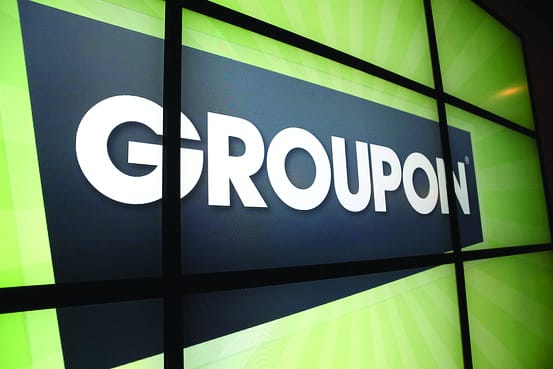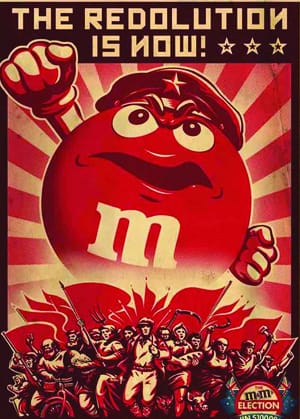Groupon: Is the social buying giant losing fuel?
Imperial Entrepreneurs investigates whether there is a future in Groupon

If you have found time to follow the news in between episodes of Made in Chelsea and The X Factor, then you will be aware that Groupon, considered the fastest growing company ever, has recently been valued at $12.7bn. The company’s rapid global expansion and large valuation (the highest since Google was launched in 2004) imply it is a hugely successful business. However, investors question whether the company’s business model is sustainable, and suggest that internet giants Google and Facebook could prevent Groupon from dominating the social buying industry. So can Groupon maintain the position it has propelled itself into, or are its days in the spotlight over?
The idea behind Groupon is simple: bulk buying is cost effective. Groupon utilizes this truth by offering vouchers for services and products at a fraction of the retail price, providing that enough people purchase the deal. This is theoretically beneficial for all parties as the consumer saves money, the participating businesses gain new customers and Groupon generates profit by taking cuts of around 50%. It sounds ideal, but does it work in reality? Groupon has 115 million subscribers (August 2011) with 32.5 million vouchers purchased in the last quarter; the site seems popular with the public. But for small businesses, such as restaurants and beauty salons which Groupon depend heavily upon, the outcome is not always positive. Many small businesses have been overwhelmed by the influx of customers, running out of stock or not fitting in everybody’s appointments before the vouchers expired (tragic for those who absolutely need their fake tan by Friday!) On top of this, participation is not always lucrative for businesses as discounts are so large, many of them suffer loses while bargain hunters seek the next giveaway ahead of becoming loyal repeat customers. Groupon is expected to generate $1.7bn of revenue this year which, whilst sounding impressive, in fact equates to little more than breaking even.
There is a major lack of organisation within the company due to its rapid development in such a short space of time. Initially based in Chicago, Groupon now operates in 175 North American markets and has quickly spanned the globe entering into 47 countries so far. The number of employees has soared from 39 to over 10,000. Although these figures sound impressive, they are accompanied with internal chaos. Communications within the company have been criticised and employees have complained that people in managerial roles were friends of the founder and are now not experienced enough for their current role. The lack of organisation is not restricted to employees; there are numerous reports of vouchers being sold for a business which had since been closed down and customers not receiving a promised refund. Two Imperial students had first-hand experience of Groupon’s chaotic communications when they were offered internships in China, signed a contract and were told a few days before they were due to fly that the placement was no longer possible.
The most notorious of Groupon’s mistakes was simultaneously upsetting the Chinese and Tibetan populations when they released an advertisement which made a plea for the people of Tibet – “The people of Tibet are in trouble” – before jokingly adding “but they still whip up an amazing fish curry.” Complaints came in thick and fast over Groupon light heartedly using the suffering of Tibetans in order to promote their product.
In fact the story of Groupon’s attempt to enter the Chinese market is adorned with setbacks. They stormed into a joint venture with Gaopeng in February, establishing themselves within a couple of months. China is notoriously hostile to international companies and Groupon is no exception. Now most of the international managers, oblivious to the Chinese culture, have since been removed and returned to their respective home countries. Just last week Groupon hit the rocks again for accidently linking up with a company selling counterfeit luxury watches. Many speculate that Groupon are heading downhill in the direction of other internet giants such as Yahoo and Google who failed to break into the harsh Chinese market.
In 2010 Groupon famously rejected Google’s offer to buy the company for $6bn. Fighting back from its rejection, Google has launched Google Offers – a site with a startling resemblance to Groupon. Competition is nothing new for Groupon (there are over 500 similar sites in America alone) but few pose such a significant threat to the social buying giant. Facebook has created their version which when fully established and implemented across the globe could see the end of Groupon’s time at the top. With such an extensive user base Facebook has the potential to knock Groupon off of the playing field and dominate social buying. Google and Facebook also have the advantage of not being the first to enter the market meaning they can steal the successful elements of Groupon whilst avoiding many of the mistakes.
In order to survive Groupon must be innovative. Launching ‘Groupon Now’ may have been a step in the right direction. This service harnesses the smartphone craze and opens an entirely new revenue stream. The simple interface consists of the two buttons, “I’m hungry” and “I’m bored” which use GPS to provide the user with deals for eateries and entertainment close to their location. This differs from the classic ‘daily deals’, which can be redeemed several months later, and provides an attractive option for businesses as they can increase sales during usually slow periods. Another new product, ‘Groupon Rewards,’ implemented in September in an attempt to increase -customer loyalty.
Customers who purchase multiple vouchers from a business which regularly offers Groupon deals will ‘unlock’ rewards which entitle them to further discounts. This will allow Groupon to accurately track how many people are repeat customers, how much individuals spend on average and should increase the number of purchases per user.
Groupon, one of the hottest internet start-ups, has wowed the world with its unprecedented rate of growth. Whether it will win the battle against Google and Facebook is yet to be determined. Only by addressing its fundamental errors, embracing new technologies and continuing down the innovative road they will they stand a chance in defying the odds and emerging as the rightful ruler of the Social Buying Empire.









